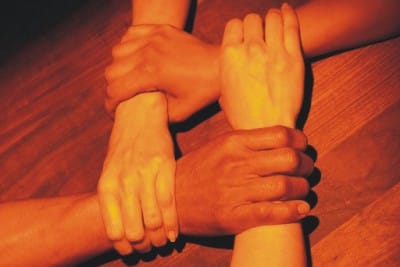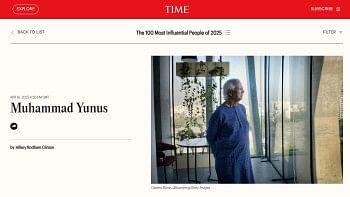A question of cost, quality or access?

Education should teach us equality, not discourage it. Photo:reconnections
I am quite enthused by three articles recently published in The Daily Star about Cadet Colleges and their utility against the overall context of the education system in the country. These pieces address a fundamental issue that continues to rattle our conscience in other spheres of life as well -- health, for example. "Equal opportunity" or "equitable access" is a coveted ideal hardly in existence in today's society.
Mr. Ekram Kabir has zestfully countered the points made in Mr. Mushfiqur Rahman's piece about cadet college products not justifying the huge expenditures they incur. I guess the fact needs no reiteration that neither came up with any statistics to bolster their viewpoints simply because there are no statistics available as no study has been conducted on such matters. Therefore, in essence, both tried to argue on some elements of their respective perception.
When we raise such comparative perspectives in a phase of education (secondary in this case), do we not forget a similar lack of "justice" existing in other phases as well? Why don't we complain, then, about the amount of money spent behind an "Applied Physics" graduate who would nonetheless spend his lifetime as a banker? Definitely, the government exchequer has spent more resources for him than an Arts graduate. There are other examples such as architects or engineers joining the civil service.
In trying to understand what may have been the reason behind Mr. Rahman's perception, I came up with something that I would like to share with the readers and my cadet friends. It seems Mr. Rahman accepts the fact that cadet colleges are great "levellers," as he said in his piece "… Faujdarthat had its egalitarian touch. A fair, competitive entry system ensured that boys from every nook and cranny of the country were selected for this extraordinary journey. The resilience of youth broke down all barriers and distinctions as we drank from the same cup of innocence."
Looking at this perspective of growing up in a system which treats everyone in the same way, a question arises -- whether cadets are well-inserted in the society that we want to build, whether they suffer from any detachment from the mainstream while leading the life of a successful officer in the Armed Forces, in the Civil Service or a businessman.
In other words, what is the lingering benefit of cadet college education? Discipline, hard work, determination and resilience are some of the character traits expected of and often found in a successful cadet. The reality of life requires one to have those qualities for success.
In addition, our nation needs more "sons of the soil," who would be aware of the twists and turns of the life of average citizens. Empathy for their suffering, understanding of their shortcomings and intention to reach out with a helping hand need to be seen in leaders of tomorrow.
Professional requirements apart, some careers do have an impact that makes the incumbent detached from the society. With a distinct way of life, they have their own association, their own club, slowly building a social identity which is, I dare say, not conducive to appreciating the realities of Bangladesh. When Mr. Rahman says, "I went through five changes of uniforms every day, one to suit each activity. Food was served in a gleaming white dining room adorned with sporting trophies and Navy crests. There was an air of colonial ambience as we unfolded our starched, fresh white napkins while waiters wearing crisp white uniforms served our meals…" does he sound nostalgic yet content? Or, is he just trying to insinuate that "the air of colonial ambience" would inject a different mindset in the cadets that ultimately bring about the "detachment" from the society? I cannot be sure.
But if the latter is his perspective, he might have some among the ex-cadets who would feel the same way. Let me just make one point here -- it would be unfair to accuse only the cadets of elitism for there are many in our society with similar afflictions though they are not ex-cadets.
When Mr. Rahman says, "I hope they will find time to reflect on the unfulfilled promises and how best to redeem ourselves and our beloved school" and Mr. Kabir affirms, "One should also feel the need to assess whether these colleges need to be upgraded to match the current and future needs." I sense, both have in mind a mundane "amenities vs. needs" perspective, not the more sublime "ethos or aesthetics" perspective which impinges on the mental make-up of a leader of tomorrow.
I wish now to refer to the other piece by Mr. Md. Touhid Hossain, the immediate past Foreign Secertary of Bangladesh and the current Principal of the Foreign Service Academy. In his article, Mr. Hossain puts succinct arguments with relevant figures to support Mr. Rahman's point that the opportunity cost of the cadet colleges is not justifiable as matters stand.
More importantly, he has made recommendations as to how much more could be done to "extend the opportunity." Again, if we are clear in our minds about the purpose, if we know that access to cadet colleges are only determined by a standardised test, then we must accept that the opportunity could not be extended to all and sundry, however much we juggle with class size or house accommodation.
Past experience shows that the effect of increasing the number of students in institutions without commensurate increase in space and amenities is not very good if we look at the quality. Such exercises may even take a "political" hue since there are cadet colleges now in every region (notionally speaking) of the country. That eventuality may pose an existential threat to the cadet colleges.
On the other hand, compromising the existing quality of cadet college education would destroy its "raison d'etre" and hand to its detractors a potent argument to do away with the system. Those who are not convinced of the cost benefit of cadet colleges would continue to harbour the same view in spite of the slight "extension of opportunity" achievable according to Mr. Hossain's recommendations.
I think, the issue here is how much egalitarian the cadet college system is in terms of making that opportunity available to those who could meet the standard at the entry point. We know, and Mr. Hossain mentions, that meritorious students from low-income families continue to get the opportunity and receive subsidies. This aspect could be the subject of more scrutiny and research in order to come up with appropriate recommendations as to how the access could be more equitable.
Counting costs is not the appropriate premise to evaluate cadet colleges as long as cadets' "relative number in leadership positions" remains remarkable. On this last point, it seems there are good arguments to support the zestful claims of Mr. Kabir, he being the youngest of the three ex-cadet authors.
(The views expressed in the articles are personal and do not reflect any organisation)

 For all latest news, follow The Daily Star's Google News channel.
For all latest news, follow The Daily Star's Google News channel. 



Comments